From today’s Corrections and clarifications in The Guardian:
It is tautologous to refer to “Mount Snowdon” as we did in panel text (Snowdon strike, 30 July, page 18). The English name Snowdon is derived from the Old English snaw dun meaning “snow hill”; in Welsh the peak is Yr Wyddfa.
I didn’t know what “tautologous” meant, so I looked it up:
the saying of the same thing twice in different words, generally considered to be a fault of style (e.g., they arrived one after the other in succession).
So “Mount Snowdon” is tautologous because it’s saying, in essence, “Mount Snow Mount.”
As it happens, Olivia and I were searching for just that word earlier in the year when discussing phrases like “PIN number” and “ATM machine.”
The first record of my Sunday waffle-making practice is from a very snowy day in 2015, but it’s a ritual that got started many years before then.
In the beginning, Catherine made the tactical error of making pancakes one Sunday morning. They were very good, and so we clearly expected her to make them every Sunday after that.
She was, rightfully, having none of that, the accumulated tasks of the patriarchy already consuming more than her waking hours. So she cleverly engineered the gift of a waffle-maker for me for Christmas, from her mother, and thus achieved a clean transition from “Catherine’s Sunday Pancakes” to “Pete’s Sunday Waffles.”
And once you make waffles a half-dozen times for a child who revels in routine, it’s basically a lifetime weekly commitment. (To the point where when on vacation in Amersfoort in 2018 we ended up with stroopwafel for breakfast, after which Olivia famously threw up in my shoe; stroopwafel are many things, but they ain’t waffles).
Waffle-maker number one eventually broke; Catherine hurried her mother into the gift of a replacement, lest the expectation of patriarchal pancakes return.
Over the years I’ve stuck to the basic waffle recipe in the manual: 2 cups flour, 3 teaspoons baking powder, salt, 2 cups milk, ¼ cup melted butter, 2 eggs. After Catherine died, and I stopped keeping eggs in the house, I switched to Bob’s Red Mill egg replacer, which results in even better waffles; I should have switched years ago.
For the last month, though, there’s been trouble in waffle city: the waffles started to stick to the waffle-maker. At first I thought I was leaving out an important part of the recipe, but I triple-checked and I wasn’t, yet week after week I was having to scrape ur-waffles from the maker.
I finally realized that time had worn the non-stick coating off the pans, perhaps aided by the unfortunate “Pete mistakenly buys baking soda instead of powder” incident.
There was nothing to be done, given the centrality of the waffle-making operation to the smooth running of the household, but to replace the waffle-maker. Which is what we did yesterday, finding the same model—the Cuisinart WAF350C—in stock at Bed, Bath, and Beyond.
Tonight I arrived home at 6:30 p.m. after work having neglected to plan for supper; spotting the waffle-maker in the counter, I reasoned that if I switched out the cinnamon and replaced it with some savoury spices, I could make supper waffles.
The waffles turned out perfectly—perhaps my best ever—and were complemented by a cheese sauce that I whipped up while they were cooking.
We’re set for Sunday waffles with this maker for another decade at least. And perhaps—no commitments—the occasional midweek ones too.
It’s been 584 days since Catherine died, 569 days since the last family from away left our house, and 154 days since anyone other than Olivia and I set foot in here.
Which is to say: the place needs a good scrub.
Especially since my mother, who I haven’t seen in the aforementioned 569 days, will be moving in next week, a way station en route to her new home just up the street.
My mother is a kind and forgiving person. And it’s not like there are squirrels living in the house (I restrict the squirrels to the office). So it’s not so much stanching the squalor as it is cleaning the things I’ve trained my eyes not to see.
We paid a visit to Canadian Tire this afternoon, stocked up on various cleaning aids, and I will spend the week casually cleaning.
So far I’ve cleaned the shower, two toilets, three sinks, and the guest bedroom. The to-do list goes: wash bathroom floor, sweep living room, vacuum library, clean out fridge, mop hallway, buy new pillows. And on from there.
The bonus of all this is that a clean house is a nicer house to live in.

After last month’s first take on a hybrid Pen Night, we did better last night, with two members from away joining us on Zoom, one from Ottawa and one from Belgium.
We switched from using my MacBook Air for the Zoom to using Dan’s Windows laptop, and this addressed the audio feedback issues we had last time. We used my external Logitech wide-angle USB webcam as both camera and microphone.
A key innovation introduced midstream: moving the laptop and camera around the room as people spoke. The Achilles heel continues to be outbound audio, and this really helped, although those away were still unable to hear casual table talk.
Other than Chantal’s excellent presentation on nib grinds, the big news from the meeting was a decision to name our group, heretofore known only as “Pen Night,” as “The Pen and Pencil Club of Prince Edward Island,” a historical hat-tip to the great Robert Harris and The Pen and Pencil Club of Montréal that he cofounded in 1890:
The majority of each meeting was devoted to a discussion of the literary and visual works presented by the members. The works generally dealt with a subject that had been agreed upon in advance (for example, summer, hell, a duel). The essays, poems, watercolours and oil or pencil compositions were analyzed, and often criticized, by all those in attendance.
Thank you to my neighbour Norman for pointing me to the artifacts in the Confederation Centre Art Gallery that prompted this suggestion.
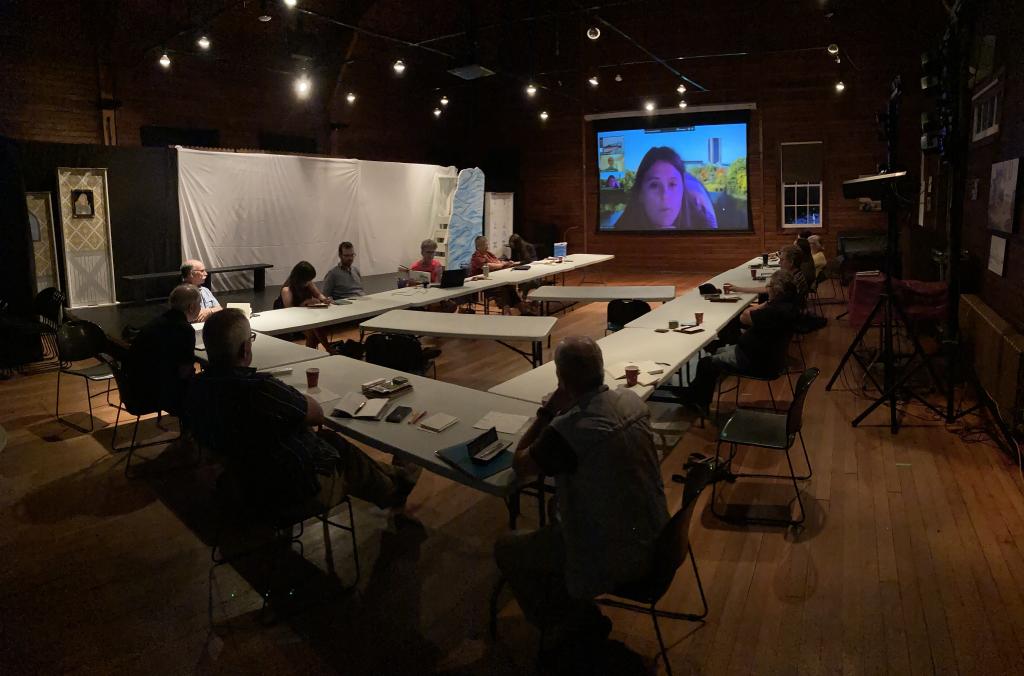 ,
, 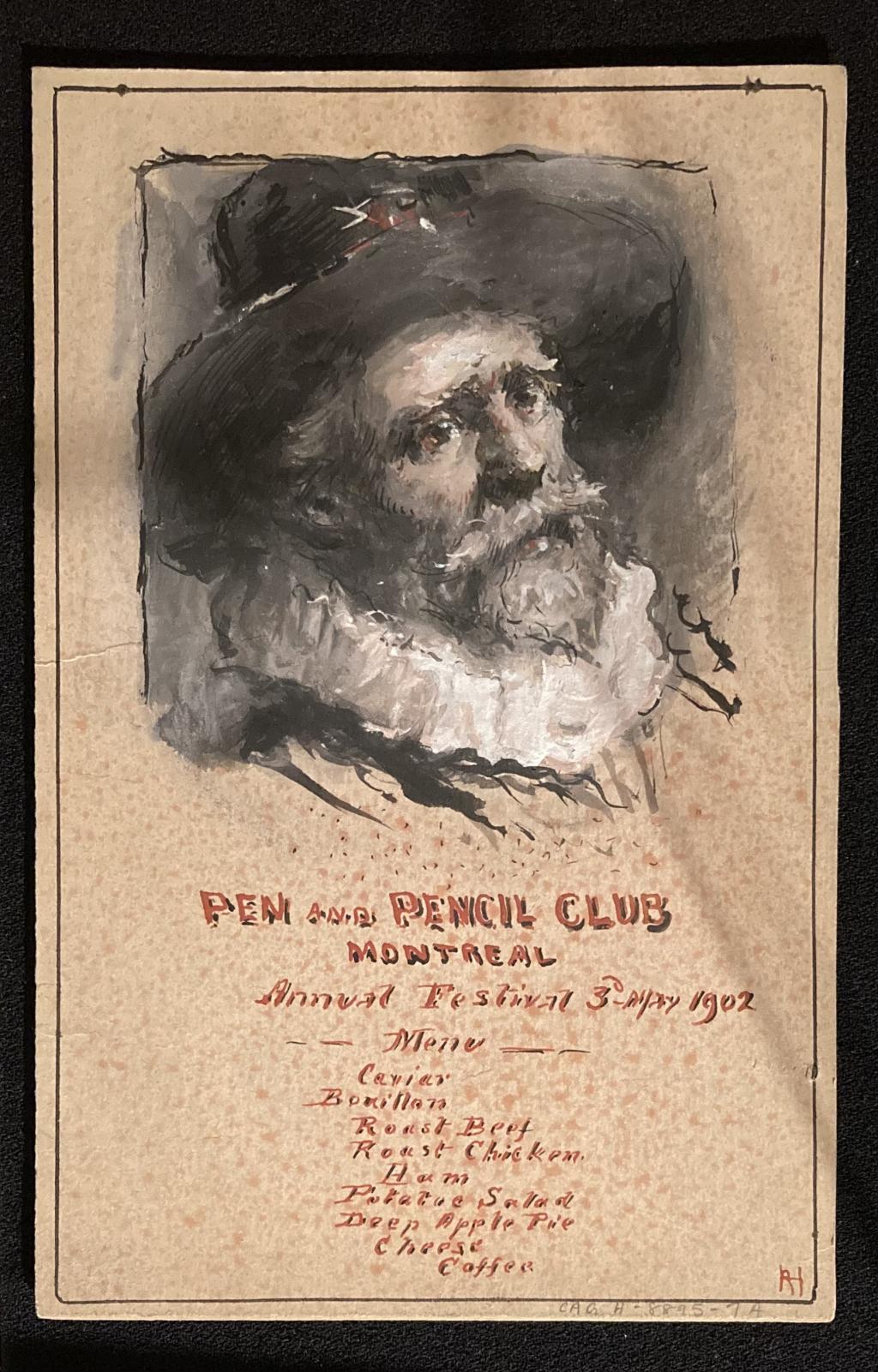 ,
, 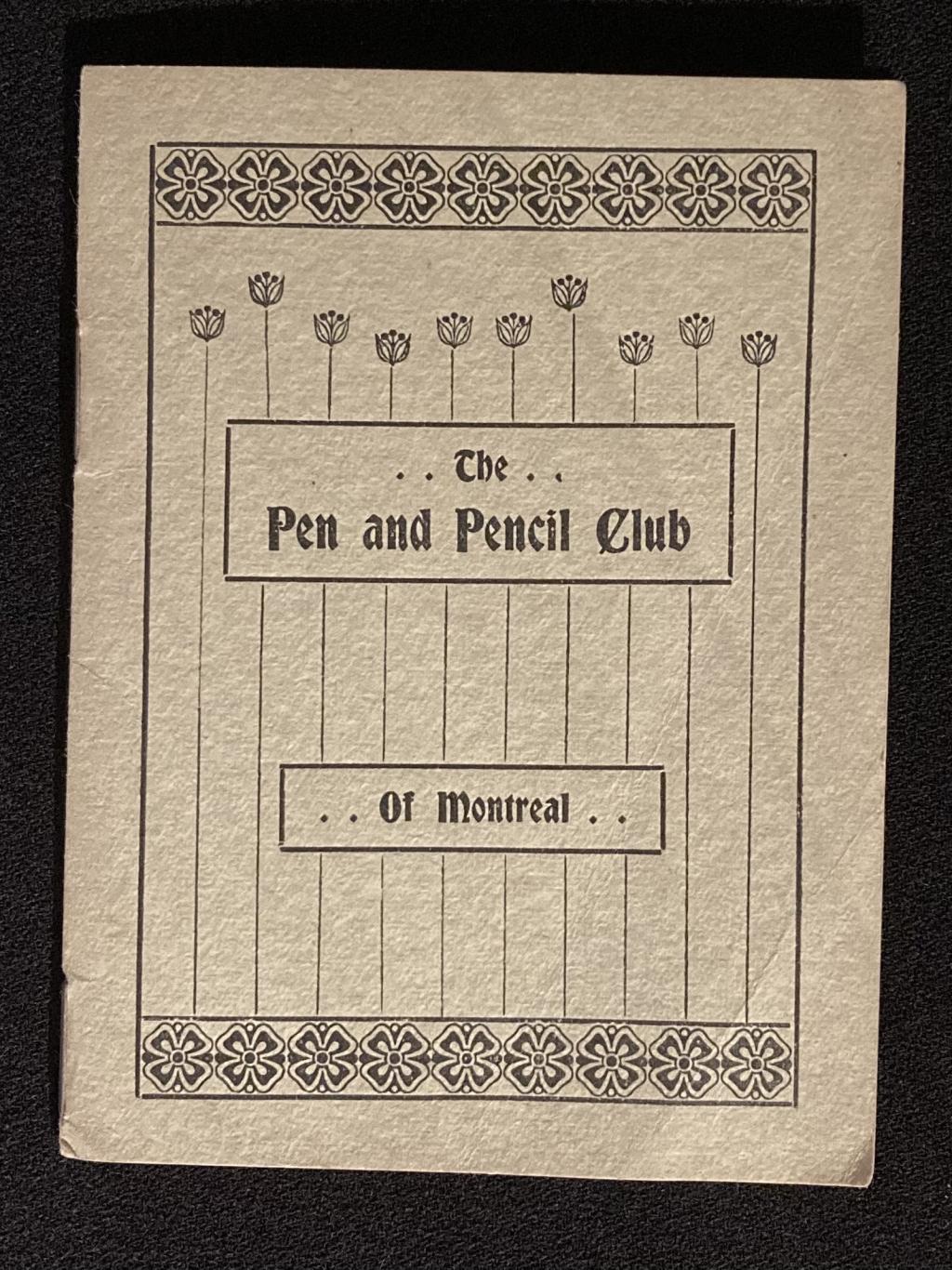 ,
, 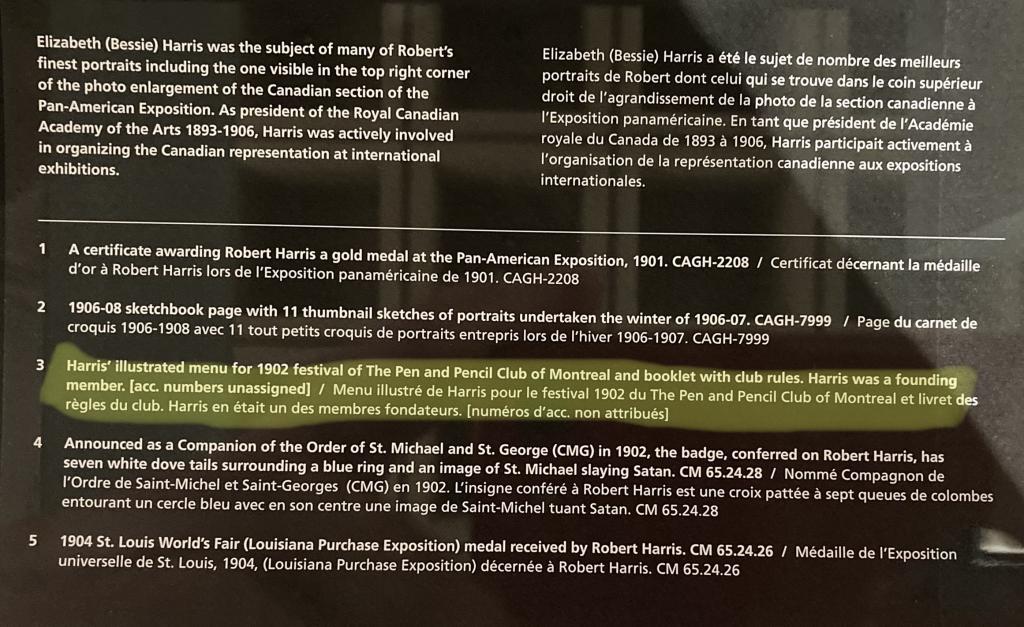
Late last night Olivia got concerned that she wouldn’t be able to vote as Olivia in the federal election.
In a drive to help clarify, I pored through the Elections Canada FAQ on identification, and was perplexed to find, highlighted in yellow, in ALL CAPS, a passage:
WAITING FOR OLIVIA TO CONFIRM IF WE KEEP THE LAST TWO FAQS
In my late-Friday, concerned-parent, tired state, I had no idea what was happening to make Elections Canada’s website talk to me.
If you’re playing the home game, you will recall that we switched from Spotify to Apple Music as our household streaming music provider back in July.
Today we switched back.
Two reasons:
First, Apple Music isn’t supported with an app for Google Home, meaning that Olivia needs to “cast” from her Android phone to her bedroom Google Home to listen to music when she’s going to sleep. Which means she needs to take her phone to bed with her. Which has all sorts of distracting repercussions.
Second, I’d underestimated the degree to which the Spotify algorithm “gets me.” Throwing back to Apple Music meant returning to a music fingerprint that I had 5 or 6 years ago, and I’ve evolved since then. This would change with time, but I simply got tired of hearing the songs of 2015 Peter in my recommended stream.
Both of these are a case for better interoperability, and for migration paths from streaming service to streaming service. Music streaming should be more like email: it should work everywhere there’s a speaker, and I should be able to transfer my taste profile from service to service.
Until that happens, I’m rejoining regularly scheduled July 2021 musical fingerprint, already in progress.
(To Apple’s credit, it was very easy to downgrade from Apple One to the component services I want to keep–iCloud storage and Apple TV+, and to Spotify’s credit, everything was waiting back where I left it when I downgraded to a free plan).
The “pano” mode on the iPhone camera is an under-appreciated tool. Especially if you avoid shooting 360° scenes.

Today Olivia and I combined a Truckin’ Roll ice cream sandwich run with a survey of the surveillance cameras in our neighbourhood.
We counted 47.
(That includes our Ring doorbell camera: glass houses.)
We didn’t have to walk far.
I mapped them all on OpenStreetMap.
Inspired by Surveillance under Surveillance (where, because it’s driven by OpenStreetMap, all 47 should shortly appear).
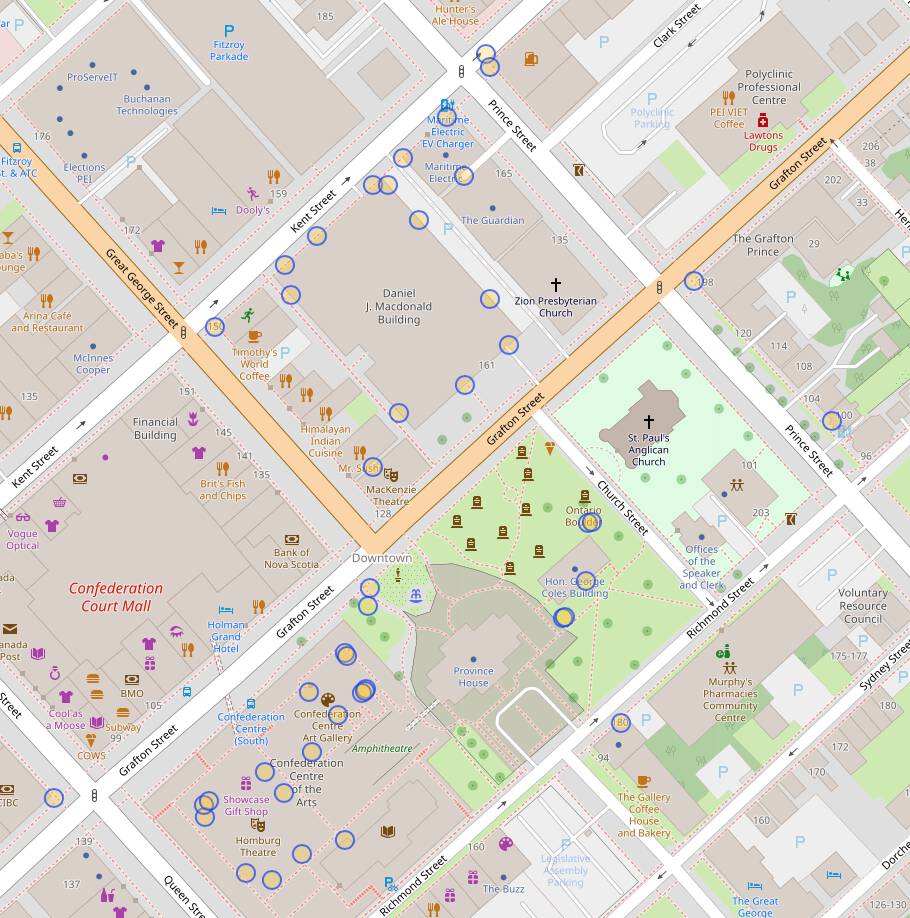
I’ve sat on a committee that reviews manuscripts submitted for publication for the last three or four years. Every nine months or so I receive a stack of PDFs to read, review, and then discuss with my colleagues. It’s been a fantastic education in how to write, and an even better one and how not to write.
When things go off the rails in a manuscript, almost always it’s because there’s an absence of story. Someone gets interested in a particular topic enough to write a book about it. They are captivated by the details of some person, or some event. So captivated that, in writing it all down, they forget to provide the connective tissue that weaves it all together. Into a story.
My own shortcut for describing what it’s like to read these: “this happened, and then this happened, and then this happened, and then this happened.” Great information, dull as a doornail.
Beau Miles uncovers the same issue with his own work in Junk Films, a commentary on four of his films, films that never saw the light of day. Because he forgot to tell a story.
Beau, you went to the Outer Hebrides, with this great group of people, with a camera that has a microphone within it, and you didn’t talk.
Ironically, the story of the failed films is, in itself, a good story.
I don’t write books, I write blog posts. But blog posts can tell stories too, and when the stars align they can tell good stories. One thing I’ve discovered in writing blog posts for 22 years is that the good ones always hurt just a little to publish: if, at the moment I’m about to click Submit, I feel twingey “can I really write this?” butterflies, that’s a good sign I’m onto something.
Miles found the same thing: if you don’t care, nobody else will.
I used tape to fix up my pants: that’s a story, Beau. If there’s one thing about my films, I try and make them personal, because that’s the only expertise I have, on myself. Stories are hard to tell because they become the essence of a big thing into something small. You gotta nail it: you find yourself waffling on and you’ve bored yourself.

 I am
I am